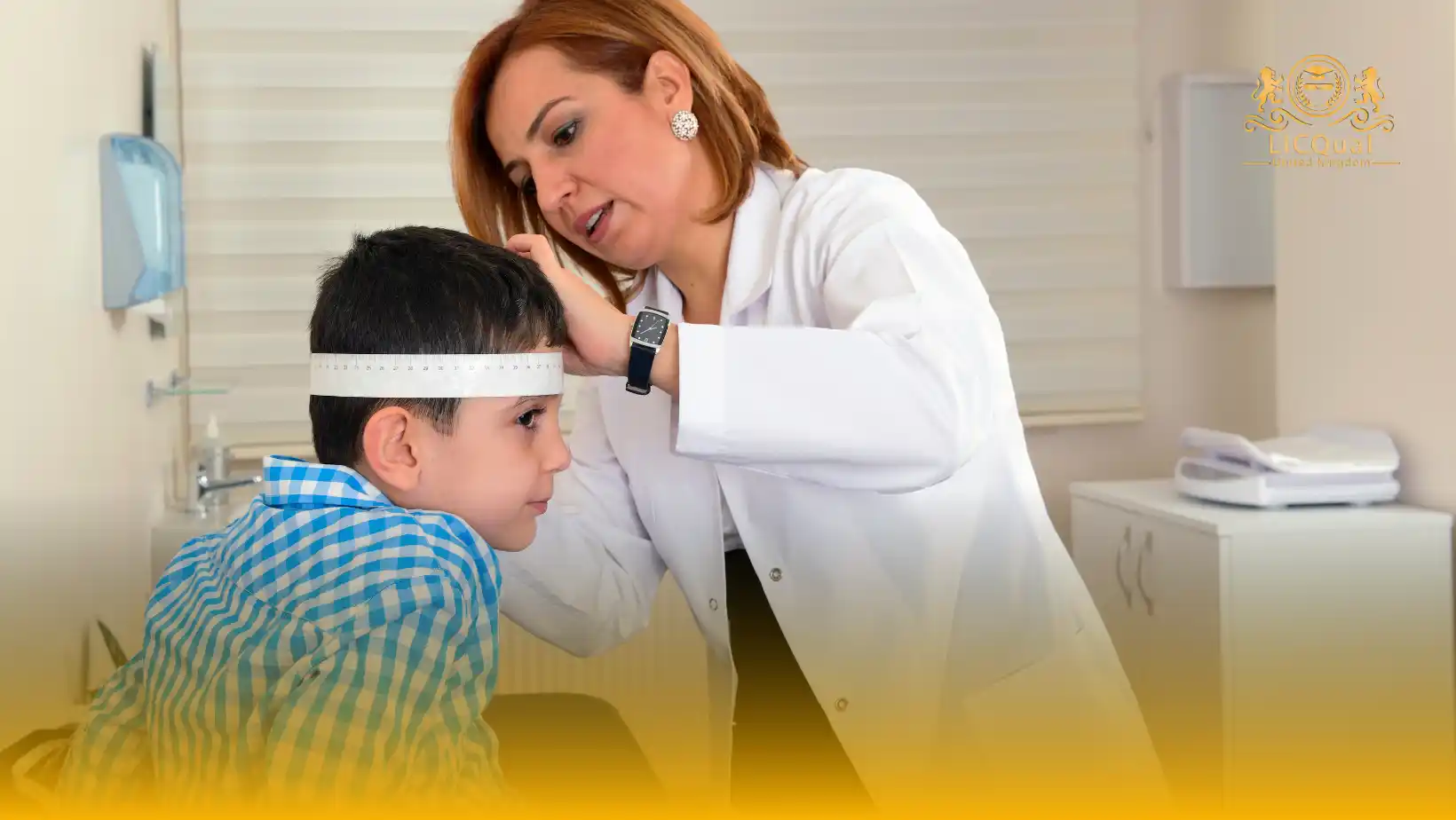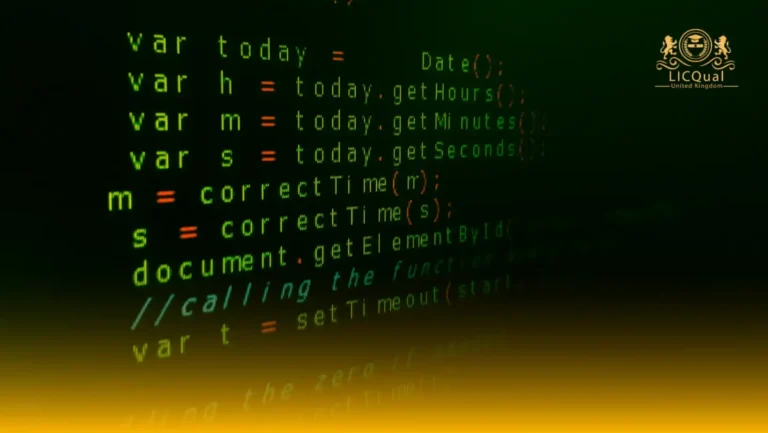The LICQual Level 3 Certificate in Pediatric Pharmacy (Cert Pediatric Pharmacy) is a specialised qualification designed to provide learners with the essential knowledge and skills required to work effectively within paediatric pharmacy practice. This programme focuses on the unique aspects of medication management in children, ensuring that learners are well-prepared to support safe, ethical, and effective pharmaceutical care for younger patients.
This qualification is aimed at professionals who wish to enhance their career prospects, broaden their knowledge base, and strengthen their Continuing Professional Development (CPD) within the field of paediatric pharmacy. It offers a structured pathway for learners to explore critical areas such as paediatric pharmacology, dosage adjustments, patient safety, and communication with patients and families. By integrating both theoretical learning and practical application, the course prepares learners to confidently meet the demands of modern healthcare.
Centres delivering this qualification must ensure they have competent and experienced staff, along with the necessary learning materials, facilities, and resources to provide a high-quality educational experience. This commitment guarantees that learners receive the best possible training environment, supporting both professional growth and successful completion of the course.
By undertaking the LICQual Level 3 Certificate in Paediatric Pharmacy, learners not only gain a recognised qualification but also position themselves as skilled professionals dedicated to improving pharmaceutical care in paediatrics. This course represents an excellent opportunity for those committed to advancing their careers while making a meaningful contribution to healthcare.
Course Overview
Qualification Title
LICQual Level 3 Certificate in Pediatric Pharmacy (Cert Pediatric Pharmacy)
Total Units
6
Total Credits
24
GLH
120
Qualification #
LICQ2201140
Qualification Specification
To enroll in the LICQual Level 3 Certificate in Pediatric Pharmacy (Cert Pediatric Pharmacy), applicants must meet the following criteria:
|
Qualification# |
Unit Title |
Credits |
GLH |
|---|---|---|---|
|
LICQ2201140-1 |
Foundations of Paediatric Pharmacy Practice |
4 |
20 |
|
LICQ2201140-2 |
Paediatric Pharmacology and Therapeutics |
4 |
20 |
|
LICQ2201140-3 |
Safe Dispensing, Dosage Calculations, and Administration in Children |
4 |
20 |
|
LICQ2201140-4 |
Ethics, Regulations, and Patient Safety in Paediatric Pharmacy |
4 |
20 |
|
LICQ2201140-5 |
Family-Centred Care, Communication, and Counselling in Paediatrics |
4 |
20 |
|
LICQ2201140-6 |
Research, Professional Development, and Emerging Trends in Paediatric Pharmacy |
4 |
20 |
By the end of this course, learners will be able to:
Unit 1: Foundations of Paediatric Pharmacy Practice
- Understand the role and scope of paediatric pharmacy in healthcare delivery
- Demonstrate knowledge of child development stages and their impact on pharmacotherapy
- Apply principles of paediatric pharmaceutical care in clinical settings
- Evaluate the challenges and responsibilities unique to paediatric pharmacy practice
Unit 2: Paediatric Pharmacology and Therapeutics
- Analyse pharmacokinetics and pharmacodynamics in neonates, infants, children, and adolescents
- Apply therapeutic guidelines for common paediatric conditions
- Demonstrate appropriate dose adjustments for age, weight, and organ function
- Evaluate case studies to support evidence-based paediatric prescribing decisions
Unit 3: Safe Dispensing, Dosage Calculations, and Administration in Children
- Perform accurate dosage calculations using internationally accepted methods
- Apply best practices in compounding, dispensing, and labelling paediatric medicines
- Demonstrate knowledge of safe administration routes for paediatric patients
- Evaluate risk management strategies to minimise medication errors in children
Unit 4: Ethics, Regulations, and Patient Safety in Paediatric Pharmacy
- Understand international and national regulations related to paediatric pharmacy practice
- Apply ethical principles in the management of paediatric patients and families
- Evaluate systems and processes to enhance medication safety in children
- Demonstrate compliance with professional codes, legal frameworks, and child protection standards
Unit 5: Family-Centred Care, Communication, and Counselling in Paediatrics
- Demonstrate effective communication techniques with children, parents, and caregivers
- Apply strategies to support adherence to complex paediatric treatment regimens
- Understand the psychosocial aspects of paediatric care and their impact on therapy outcomes
- Evaluate the role of pharmacists in multidisciplinary paediatric healthcare teams
Unit 6: Research, Professional Development, and Emerging Trends in Paediatric Pharmacy
- Understand the importance of research and innovation in advancing paediatric pharmacy practice
- Critically evaluate emerging therapies, technologies, and clinical guidelines in paediatrics
- Demonstrate reflective practice and commitment to lifelong learning and CPD
- Develop a professional development plan to enhance career progression in paediatric pharmacy
The LICQual Level 3 Certificate in Pediatric Pharmacy (Cert Pediatric Pharmacy) is designed for healthcare professionals, pharmacists, and graduates who want to specialize in pediatric drug management and advanced pharmaceutical care for children. This internationally accredited pediatric pharmacy certification is ideal for those seeking CPD credits, career advancement, and recognition in global healthcare systems. Whether you are already practicing or planning to enter the field, this program equips you with the skills and qualifications to stand out in pediatric pharmacy practice.
1. Practicing Pharmacists
- Professionals aiming to specialize in pediatric pharmaceutical care
- Interested in managing age-specific formulations and dosing accuracy
- Seeking accredited pediatric pharmacy certification for career growth
- Looking to earn CPD credits recognized internationally
- Committed to improving patient outcomes for children
2. Healthcare Professionals in Clinical Settings
- Doctors, nurses, and allied health staff working with pediatric medicines
- Those aiming to strengthen interdisciplinary collaboration in child healthcare
- Interested in structured training in pediatric drug management
- Seeking international healthcare qualifications for career progression
- Focused on enhancing patient safety and treatment compliance
3. Pharmacy Graduates and Early-Career Professionals
- Recent graduates seeking advanced pediatric pharmacy certification
- Individuals preparing for international healthcare opportunities
- Looking to build expertise in pediatric drug safety and therapeutic guidelines
- Interested in flexible online learning with accreditation
- Focused on boosting employability in competitive healthcare markets
4. International Pharmacists and Healthcare Providers
- Professionals seeking globally recognized pediatric pharmacy qualifications
- Those aiming to meet international accreditation standards
- Interested in CPD credits for career advancement abroad
- Looking to expand knowledge in pediatric pharmaceutical practices
- Committed to strengthening professional credibility worldwide
5. Clinical Researchers and Academics
- Researchers focusing on pediatric drug development and clinical trials
- Academics seeking structured certification for teaching and training
- Professionals aiming to contribute to evidence-based pediatric studies
- Interested in advanced pharmaceutical care methodologies for children
- Looking to align with international healthcare education standards
6. Healthcare Administrators and Policy Makers
- Administrators overseeing pediatric pharmacy services in hospitals
- Policy makers aiming to improve child healthcare delivery systems
- Those seeking insights into pediatric drug management frameworks
- Interested in accreditation and compliance standards for pediatric care
- Focused on strengthening healthcare programs with advanced pharmacy expertise
7. Professionals Seeking Career Advancement
- Individuals aiming for leadership roles in pediatric pharmacy practice
- Those wanting to stand out with accredited pediatric pharmacy certification
- Interested in international recognition and CPD credits
- Looking for career growth in hospital, clinical, or academic settings
- Committed to lifelong learning and healthcare excellence
Centres delivering the LICQual Level 3 Certificate in Paediatric Pharmacy (Cert Paediatric Pharmacy) must maintain high standards to ensure effective delivery, learner success, and compliance with international best practices. To achieve this, the following requirements must be met:
- Qualified and Experienced Staff: Centres must employ trainers and assessors with relevant qualifications, professional experience, and expertise in paediatric pharmacy and healthcare.
- Comprehensive Learning Resources: Centres must provide updated course materials, textbooks, case studies, and access to digital resources tailored to paediatric pharmacy practice.
- Facilities and Equipment: Training providers should ensure that classrooms, IT facilities, and learning environments are suitable for delivering both theoretical and practical aspects of the programme.
- Assessment and Quality Assurance: Centres must implement robust assessment systems, internal verification, and quality assurance processes to maintain academic standards and learner integrity.
- Learner Support Services: Academic guidance, mentoring, and career support must be available to help learners achieve successful outcomes throughout the course.
- Access to Technology: Centres should ensure learners have access to computers, internet connectivity, and online platforms for blended or distance learning delivery.
- Compliance with Standards: Centres must adhere to LICQual policies, ensuring ethical training delivery, learner safety, and compliance with awarding body requirements.
By meeting these centre requirements, training providers will deliver a high-quality learning experience, supporting learners in gaining advanced skills and knowledge essential for success in paediatric pharmacy practice.
Assessment and Verification
All units within this qualification are subject to internal assessment by the approved centre and external verification by LICQual. The qualification follows a criterion-referenced assessment approach, ensuring that learners meet all specified learning outcomes.
To achieve a ‘Pass’ in any unit, learners must provide valid, sufficient, and authentic evidence demonstrating their attainment of all learning outcomes and compliance with the prescribed assessment criteria. The Assessor is responsible for evaluating the evidence and determining whether the learner has successfully met the required standards.
Assessors must maintain a clear and comprehensive audit trail, documenting the basis for their assessment decisions to ensure transparency, consistency, and compliance with quality assurance requirements.







